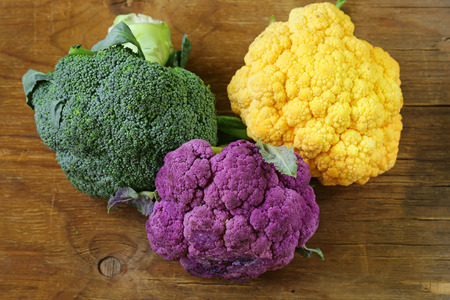Healthy diet programs always emphasize eating more vegetables. We all know that veggies are very nutritious and low in calories. But, if your body is not used to the fiber content in vegetables, or you are sensitive to cruciferous vegetables, like cauliflower, broccoli and Brussels sprouts, you may experience uncomfortable gas and feel bloated.
I don’t want to discourage you from adopting healthy diet programs because your body can’t handle a big influx of fiber all at once. As a Certified Nutritionist, I advise my vegetable adverse clients to go slowly and notice how their body reacts. If there is a particular vegetable that routinely causes excessive amounts of gas, minimize or eliminate it. There are so many vegetables to choose from. So, go on a food adventure until your body adjusts.
A recent article in on the mindbodygreen website, offers some other gas remedies to try:
How to Reduce Bloating on Healthy Diet Programs
It’s one of the most common complaints of people who’ve recently tried to healthify their diet: “I’m eating all of these so-called good-for-me foods, but I’m so bloated and gassy!”
It seems unfair that a loaf of white bread can somehow sit well in one’s stomach while a plateful of kale can cause a mini Mount Vesuvius eruption, but luckily, there are a few common reasons for the discomfort. More importantly, a few easy ways to fix it.
Suggestions for Healthy Diet Programs and Bloating
Here are some suggestions worth trying:
· Do an elimination diet.
Diana Rodgers, R.D., founder of Sustainable Dish:
The best way to see what is causing issues for you is to do an elimination diet to get to the root of the issue. For some, onions and garlic are the culprit, and for others, it’s dairy, beans, or any type of grain. This often is caused by SIBO (small intestinal bacterial overgrowth).
· Swap garlic for ginger.
Phoebe Lapine, host of the SIBO Made Simple podcast:
Many people with IBS symptoms have small intestinal bacterial overgrowth (SIBO.) It is a gut imbalance where bacteria is overgrowing in the small intestines An easy swap to see if your bloating or gas gets better, is simply nixing garlic in favor of ginger.
One of your gut bacteria’s favorite foods is garlic, which can lead to uncomfortable symptoms like gas and bloating. Ginger, on the other hand, is thought of as a natural prokinetic. That means that it helps encourage your gut’s housecleaning wave to move food through your system.
· Limit FODMAPs.
Will Cole, D.C., author of Ketotarian:
FODMAPs are another common culprit behind gas and bloating symptoms in healthy diets.
FODMAPs stand for fermentable oligosaccharides, disaccharides, monosaccharides, and polyols and are short-chain sugars. They can be excessively fermented by your gut bacteria, which releases hydrogen gas—causing that feeling of gas in your stomach. Some of these include artichokes, garlic, onions, apples, watermelon, and grains. The goal isn’t to remove these foods forever but to slowly reintroduce them in moderate amounts.
Drink More Water
Ellen Vora, M.D., mbg Collective member and founder of EllenVora.com:
Outside of changing your diet, you can drink a big glass of water first thing in the morning. I think there’s nothing more important or helpful than starting the day with a tall glass of filtered or spring water before you eat anything. This is the best way to prompt your body to have a thorough bowel movement and start the day with a calm stomach.
Click here for full article about healthy diet programs and gas and bloating.






